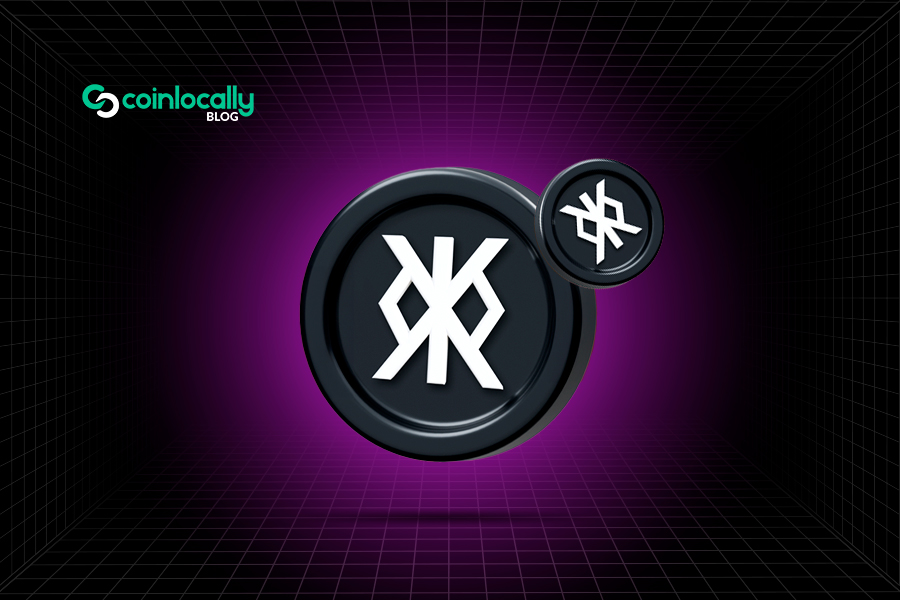Crypto demo trading is essential for anyone looking to learn how to trade cryptocurrencies without risking real money. By simulating trading activities in a real-time environment, beginners and experienced traders alike can practice strategies, explore trading platforms, and develop market skills safely. In 2025, more platforms than ever will offer free and accessible crypto demo trading accounts to help users grow confident before transitioning to live trading.
Table of Contents
What is Crypto Demo Trading?
Crypto demo trading, or paper trading or virtual trading, involves using a simulated account to perform cryptocurrency trades using virtual funds. Cryptocurrency brokers or exchanges typically provide these accounts and mirror real market conditions. Traders can access live price data, execute orders, and monitor their performance as if trading with real capital.
The primary benefit of crypto demo trading is gaining hands-on experience without financial risk. It’s useful for testing trading strategies, understanding order types, and practicing risk management—all without using real funds.
While demo trading is beneficial, it’s important to note that it doesn’t fully simulate the emotional impact of real trading. The lack of real money at stake can affect decision-making, so traders should keep that in mind when transitioning to live trading.
What is a Crypto Demo Account?
Brokers offer a crypto demo trading account that mimics a real trading environment but uses virtual money. Although it closely simulates real market conditions, minor differences may occur, such as order execution behavior or slippage. Because no real money is involved, there is no financial risk to the trader.
Practice Trading Accounts for Cryptocurrency
A practice trading account is another name for a crypto demo trading account. It allows users to test cryptocurrency trading in a safe, simulated environment. These accounts come with a virtual balance and are intended to help users familiarize themselves with the platform and market behavior.
Practice accounts are ideal for testing trading strategies, observing price movements, and exploring various features of a crypto exchange without the fear of real losses.
Virtual Trading Simulations for Crypto Education
Virtual trading simulations are often seen as educational tools or games designed to replicate real-world trading experiences. Users are given virtual funds and can trade crypto assets in real-time using actual market data. This helps individuals practice analyzing trends, managing risk, and making trading decisions under realistic conditions.
These simulations are constructive for new investors who want to understand how the crypto market behaves without making real financial commitments.
Free Crypto Demos
Free crypto trading demos are simulated platforms offered by exchanges or brokers at no cost. They enable users to experience trading features with virtual currency, making them perfect for trial runs or learning periods.
Most free crypto demo trading platforms include essential tools like charting features, market news, and trading interfaces. These give users a feel for what live trading will be like.
Advantages of Free Crypto Demo Trading
Crypto demo trading offers numerous benefits:
- Zero financial risk: Practice trading without risking actual funds.
- Platform familiarity: Learn how to use the interface, set trades, and monitor assets.
- Strategy testing: Try different methods and track what works without consequences.
- Educational value: Access tutorials, webinars, and learning resources.
- Real-time learning: Experience how fundamental markets move and react.
While helpful, remember that crypto demo trading may not fully reflect live market conditions. Liquidity, slippage, and execution speed could differ. This is why cautious progression to live trading is advised.
Simulated Crypto Trading Tools
Simulated trading tools are software or platforms that replicate real crypto trading scenarios. These tools provide users with access to real-time market data, trading features, charting tools, and risk management options—all without financial exposure.
These tools help users:
- Practice placing orders
- Analyze charts and indicators
- Manage virtual portfolios
- Test strategies on historical or real-time data
Simulated tools are ideal for beginners and experienced users who want to refine techniques before using real money.
Risk-Free Trading Trials
Some platforms offer risk-free trading trials, during which users can trade in a real market environment using funds provided by the platform. These trials often replicate live trading very closely, giving traders a realistic feel without risking their capital.
Risk-free trials are beneficial for evaluating new platforms or strategies. However, it’s essential to recognize that these trials may not fully simulate the market stress or emotional pressure.
Learn Cryptocurrency Trading with Demo Accounts
Here’s how to maximize your learning with a crypto demo trading account:
- Explore the platform: Navigate menus, use indicators, and place practice trades.
- Test strategies: Try technical and fundamental approaches under different market conditions.
- Practice risk management: Use stop-loss and take-profit tools to manage potential losses.
- Analyze markets: Study charts and monitor price action to build market intuition.
- Keep a journal: Document trades, strategies, and outcomes to learn from successes and mistakes.
- Use educational materials: Take advantage of tutorials and webinars to reinforce learning.
- Trade realistically: Treat demo trading like real trading to develop discipline and emotional control.
Conclusion
Crypto demo trading is a powerful resource for traders of all experience levels. It allows beginners to explore trading platforms, learn market behavior, and build strategies in a safe, risk-free environment. For experienced traders, it offers a space to test new ideas, fine-tune techniques, and evaluate platform features.
Whether you’re just starting out or refining your edge, crypto demo trading is essential to becoming a confident and informed trader. The right tools and mindset can be the foundation of long-term trading success.




